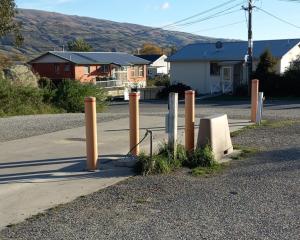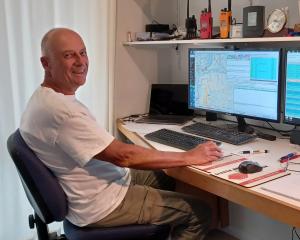
It sounds like a plot for a television show about housewives laundering cash. However, the only laundering these ladies are doing is of unwashed donations.
Roxburgh Thrift Shop committee president Lorraine Hansen said in the past year they had given $17,000 to their community.
With fixed prices — $5 for adults’ clothing, $10 for jackets and children’s clothes $3 — and assorted bric-a-brac, the donations from a shop only open three days a week are a testament to the committee and customers, who hail from far and wide.
One day last week there was only one customer from Roxburgh. All the others were travelling, including a couple from Rotorua and an Alexandra resident who said prices in her hometown’s thrift shops had risen too high for her.
Mrs Hansen said the committee was formed and the shop opened 32 years ago by members of the town’s four churches when they saw a need for low-priced clothing.
"It’s as bad now as it was then," she said.
A newcomer to town at the time and keen to meet people, Mrs Hansen joined the committee. She had been president for many years, she said.
The committee of 10 ran the shop and decided each month where they would distribute their profits. The recipients ranged from Otago Rescue Helicopters to the local school for trips.
Funds available to give away had steadily risen each year. The rent for the shop was low and everyone involved was a volunteer, she said.
Nine of the members were rostered to run the shop and took a week each in rotation. Mrs Hansen gets a pass these days.
Eftpos had helped increase sales, she said.
There were some disappointing, and occasionally unpleasant things, found in donation bags. Volunteers would take things home to be soaked and washed where they could but some things were beyond salvage and had to be dumped, which could be a problem.
Items left outside after hours were also an eternal problem, Mrs Hansen said.
However, there were equally lovely things donated, including items still with tags attached.
NiVan RSE workers were frequent customers and loved to find something to take home for their families, from jewellery to children’s clothes, Mrs Hansen said.
One had found a suit for his wedding and paraded up and down the street in it, to the delight of the shop staff.













